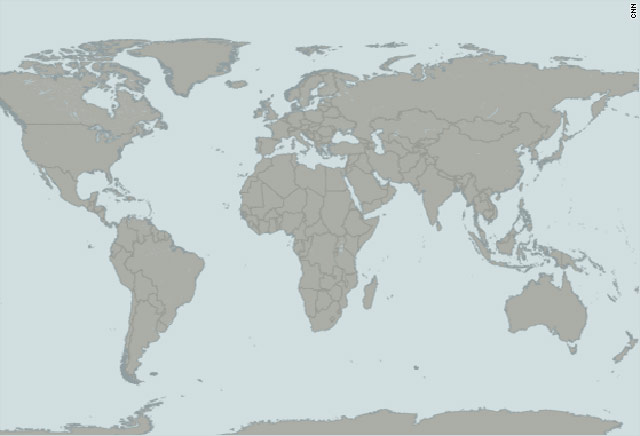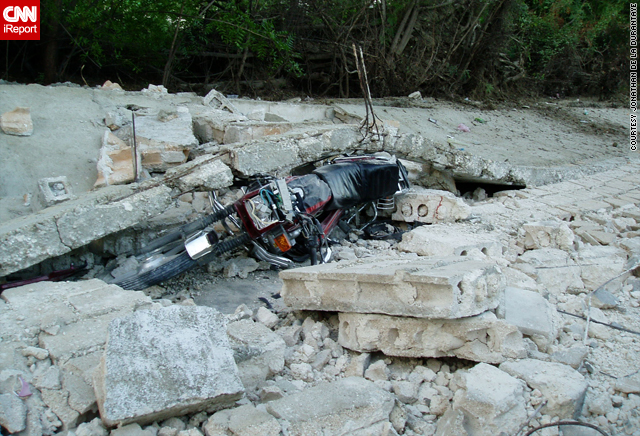Experts warned of Haiti earthquake risk

- Scientists have warned for years that Haiti was at risk for a major earthquake
- At a 2008 conference, five scientists called a fault zone there "a major seismic hazard"
- A 2004 study found a similar risk along a neighboring fault zone to the north
- Geologist fears that Tuesday's 7.0 quake "could cause significant casualties"
(CNN) -- Scientists have warned for years that the island of Hispaniola, which Haiti shares with the Dominican Republic, was at risk for a major earthquake.
Five scientists presented a paper during the 18th Caribbean Geological Conference in March 2008 in Santo Domingo, Dominican Republic, stating that a fault zone on the south side of the island posed "a major seismic hazard."
Tuesday's potentially disastrous 7.0 earthquake occurred in Haiti along the same fault line, known as the Enriquillo-Plantain Garden fault zone.
"We were concerned about it," said one of the paper's authors, Paul Mann, a senior research scientist at the University of Texas' Institute for Geophysics.
"The problem with these kinds of strikes is that they can remain quiescent -- dormant -- for hundreds of years," he said Tuesday evening. "So it's hard to predict when they'll occur."
 Map: 10 Biggest, 10 deadliest quakes
Map: 10 Biggest, 10 deadliest quakes
 Gallery: 7.0 magnitude quake strikes Haiti
Gallery: 7.0 magnitude quake strikes Haiti
 Video: Haitian capital overview
Video: Haitian capital overview
The findings by Mann and his colleagues followed a 2004 study in the Journal of Geophysical Research in which two geologists found a heightened earthquake risk along the Septentrional fault zone, which runs through the Cibao valley in the northern Dominican Republic.
"This is seismically a very active area of the world," one of the geologists, said Jian Lin of the Woods Hole Oceanographic Institution in Massachusetts. "Geologists should not be surprised by this earthquake."
Lin co-authored the study with geologist Uri ten Brink of the U.S. Geological Survey.
The epicenter of Tuesday's quake was 10 miles southwest of Port-au-Price, the Haitian capital. Its proximity to the country's population center had scientists concerned Tuesday night.
"Because the earthquake was so close to the capital city, because the city is so populated and because the country is so poor -- the houses are not well-built -- it could cause significant casualties," Lin said.
But Mann believes that Port-au-Prince's modest skyline could work in its favor.
"Port-au-Prince doesn't have high-rises," said the geologist, who has visited the city. "It's mostly a low-rise kind of place. And that may be a fortunate thing for them."
The Enriquillo-Plaintain Garden fault is similar in structure and character to the San Andreas fault of California in that both are strike-slip in nature, meaning the plates move past each other in a horizontal direction, Mann said.
"The island of Hispaniola is caught between two tectonic plates," said Michael Blanpeid, associate coordinator for the USGS's Earthquake Hazards Program. "The North American and the Caribbean tectonic plates are shearing the island, crushing it, grinding it. And as that occurs, earthquakes pop off."
A dozen major earthquakes measuring 7.0 or greater on the Richter scale have occurred in the Caribbean near Puerto Rico, the U.S. Virgin Islands and the island of Hispaniola in the past 500 years, scientists said.
The last major earthquake near Hispaniola, a magnitude 8.0 in 1946, caused a tsunami and left 20,000 people homeless, according to the U.S. Geological Survey.
The last large earthquake based on historical records in the Port-au-Prince area was in 1770, Mann said.








